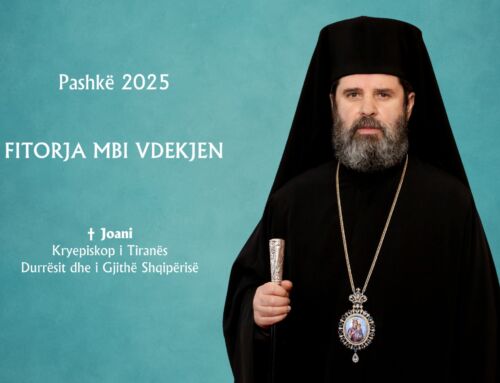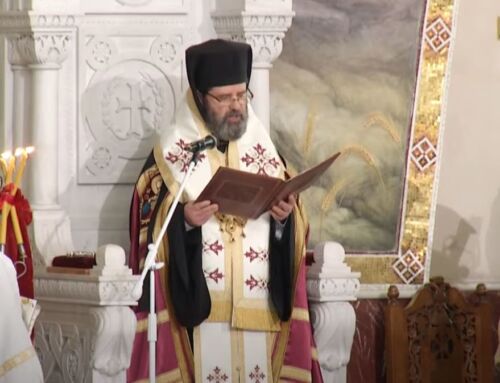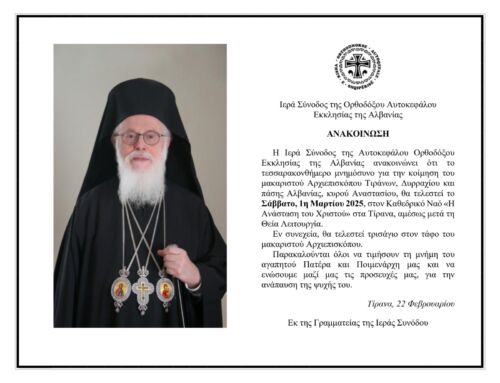We, three hundred and six delegates of diverse churches in Europe, gathered in the historical city of Lyon, France, from the 15th till the 21st of July 2009, under the theme “Called to one hope in Christ”, on the occasion of the 13th General Assembly and the fiftieth anniversary of the Conference of European Churches, convey this message to the member churches of our ecumenical movement and all of Europe.
One hope in Christ
As Christians we dare to hope. As the letter to the Hebrews affirms, faith is the substance of things hoped for. Hope must be seen as an essential aspect of the Christian faith. Hope gives us joy, peace, courage, boldness and freedom. It liberates us from fear, opens our hearts and strengthens our witness to the Risen Lord. All Christians are called to the one hope in Christ, as a way of love, forgiveness and reconciliation. As Christians, we share our hope in the risen Christ with the communities in which we live and to which we belong. The Charta Oecumenica is the basis for our engagement ecumenically and with society.
Looking to the future
CEC was founded fifty years ago in a divided Europe and has sought to build bridges between East and West and to bring Christians together. It was founded in a Europe torn by wars and in desperate need of seeds of hope and resurrection.
Today, as we celebrate fifty years of the existence of CEC, the situation in Europe has considerably changed. This year is the twentieth anniversary of the fall of the iron curtain which gave new hope not just to Europe but to the whole world. Nevertheless, many European societies are still struggling with the consequences of the atheist communist dictatorships in Central and Eastern Europe which still affect attitudes, create suspicion and hinder real reconciliation between East and West.
While we eagerly work for, and anticipate, a reconciled and united Europe, we mourn that new walls of separation are being erected between nations, cultures and religions. We see new divisions appearing – between the settled and the migrating, rich and poor, employed and unemployed, those whose rights are respected and those whose rights are put aside.
There are worldwide crises with global consequences. Climate change and the destruction of the environment call us to work for the integrity of the creation, both by influencing politicians and decision makers, and by looking to ourselves by reducing our own ecological footprint and CO2-emissions. The far-reaching financial crisis demands that we recognise the opportunity for a new economic order to emerge and to remind the world of the need for an economy based on ethical responsibility and environmental sustainability – at the same time as we make sure that we as churches invest our own financial resources with the same high standards as we demand from others. All this challenges our deep commitment in the conciliar process for justice, peace and the integrity of creation.
Despite all this, it is our deep conviction that we as Christian people have a special hope to share in situations where there may seem only despair. We declare: There is hope! – in our struggle for truth and justice. There is hope when we resist all forms of violence and racism, when we defend the dignity of every human person. There is hope when we insist on the obligation for unselfish solidarity between people and peoples; when we fight for unfeigned respect for the creation.
We believe that Europe can and should be an open-minded, welcoming and inclusive continent. We affirm that there should be open doors for any who seek sanctuary from persecution and violence. At this CEC Assembly we have celebrated closer co-operation with the Churches Commission for Migrants in Europe. This will be further manifested in 2010, a year of “European churches responding to migration”, when together we have the opportunity to witness to our Christian commitment to refugees and migrants.
The assembly, in looking to the future, has established a working group to carry out a revision of the CEC as a whole, including a common purpose, vision and a setting of strategic goals – and which structures would serve these goals in an optimal way. The Assembly asks all the member churches to commit to this review and the ongoing work of the CEC.
Challenges to us as churches and christians
The challenges given from the Assembly to all the member churches is the daring message about hope – but a hope not expressed in empty statements but in deeds and a living faith. We affirm that the churches need to work for justice and speak truth to power! It is about breaking down walls between people, cultures and religions and learning to seek God’s image in the face of “the other”. It is about respecting and not only tolerating other human beings.
Above all it is about finding new expressions of solidarity with the poor amongst us and in other parts of our world. Together let us be reminded of the words of the Apostle Peter, who declared: “Always be prepared to make a defence to anyone who calls you to account for the hope that is in you, yet do it with gentleness and reverence” ( 1 Peter 3:15)


